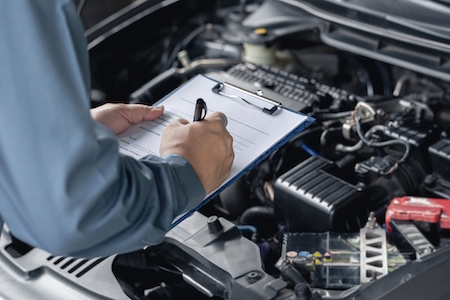According to the US Department of Transportation’s Federal Highway Administration, the average number of miles driven by car owners hovers around 14,000 miles per year, or about 40 miles per day.
Cars today are better built, meaning they can last longer than cars built a few decades ago. Because cars are also more expensive, consumers choose to keep their vehicles 10.5 years for cars and 13.6 years for pickups.
Will you watch your car’s speedometer move to 100,000 miles or more? If you see yourself in this article, your answer is probably: Yes.
Car care changes once your vehicle hits 100,000 miles. That moves it up into the “high mileage” category. There’s still plenty of wear left on your vehicle, providing it’s well maintained throughout its life.
What happens as a car ages
With excellent care and maintenance, today’s cars can easily see 200,000 miles or more.
It’s important to note that age alone doesn’t indicate the reliability of a car. A car sitting in a garage for 5 years will be different from a car driven on average 14,000 miles to work each day. Mileage is often a better indicator of condition, controlling your approach to regular maintenance.
While your car’s owner’s manual suggests when key components need replacing, it’s important to consider the way you drive when you set up your maintenance schedule. Certain components, such as hoses and gaskets, have a predictable lifespan. They will need replacing with the passage of time.
Other components don’t rely on age and mileage as much, such as the engine. With proper maintenance, it can continue to last for years to come.
As your vehicle moves past 100,000 miles, minor issues may creep up faster, turning into full-blown problems without fast action. That’s why it’s more important with high mileage vehicles to stick with a schedule and act quickly whenever you detect a problem.
Consider this maintenance list as you set up your own timetable to ensure your high mileage car makes it another 100,000 miles.
Maintenance care for cars with more than 100,000 miles
Once your car hits 100,000 miles, you’ll have to follow a maintenance schedule more closely than you did in the past. This includes:
Prioritize fluid changes
Car owners learn early on that motor oil is the lifeblood of a car, and it’s important to change every 3,000 to 5,000 miles. It becomes more crucial the older the car is, to ensure your engine is lubricated, cool, and in good working condition. Driving with buildup anywhere within the system can damage the different components in the engine compartment. Err on the side of changing the oil more frequently for best results.
Now that your vehicle has hit 100,000 miles, it’s also important to pay attention to other fluids too. It’s recommended that you have a mechanic evaluate other fluids, such as:
- Transmission fluid
- Coolant
- Power steering fluid
- Brake fluid
Depending on your vehicle, certain fluids are stored in sealed containers, which makes replacement unnecessary. If it needs replacing, it’s a systems problem and you’ll be replacing more than the fluid. This is a good time to check your owner’s manual and familiarize yourself with each system and what to expect to maintain it. You can also work with a reputable mechanic to get clear and proper procedures for car health and maintenance.
Minor repairs to ward off major issues
Each system is built from various parts. Your car is built from more than 10,000 parts, each playing an important role in a car’s overall health.
To keep your car running well, make it standard practice to replace individual parts as they wear out. Keep an eye on things like:
- Filters
- Belts
- Hoses
- Gaskets
- Spark plugs
- Shocks and struts
Today’s technology makes it easier than ever before. If you notice a dashboard light, alerting you to a problem, don’t ignore it. It’s a surefire way to let minor problems grow quickly into more expensive issues.
One of the best ways to prevent big issues, especially as your car ages, is to schedule preventive maintenance items to avoid failure at inopportune times. If you work with the same mechanic throughout the year, they can help create a schedule that keeps your car in good condition while putting less strain on your wallet.
Tires and brakes
Your tires are the only component that connects to the surface. It takes every bump in the road, and adjusts based on weather conditions for the day. That makes your tires one of the most vital components to ensure they are operating well.
Start with regular security checks. This involves observing each tire from time to time, looking for wear marks, cracking, bulging. Pay attention if you’re alerted to over or underinflation and fix it as soon as possible. You should also get your tires balanced and aligned on a strict schedule too.
Your tires are connected to the brake system, providing safety and security for the vehicle and the passengers. Like other components, brake maintenance will depend on how often you drive and how you drive your car. Brake pads are the most frequently replaced, somewhere between 25,000 and 65,000 miles.
If your brake pads wear too low, they can damage rotors and calipers, which are higher priced expenses. Therefore it’s worth your time to ensure the brake pads are in optimal condition, and to replace them before they wear down. Bring it in for a brake inspection if you have any questions.
Here’s to the next 100,000
Your car made it to 100,000 because of your due diligence. With a proper maintenance schedule and a little TLC, it could make it to 200,000.
Car maintenance after 100,000 miles should be an essential part of your process to keep your vehicle running well.
How can we help you keep your car in good working condition?

